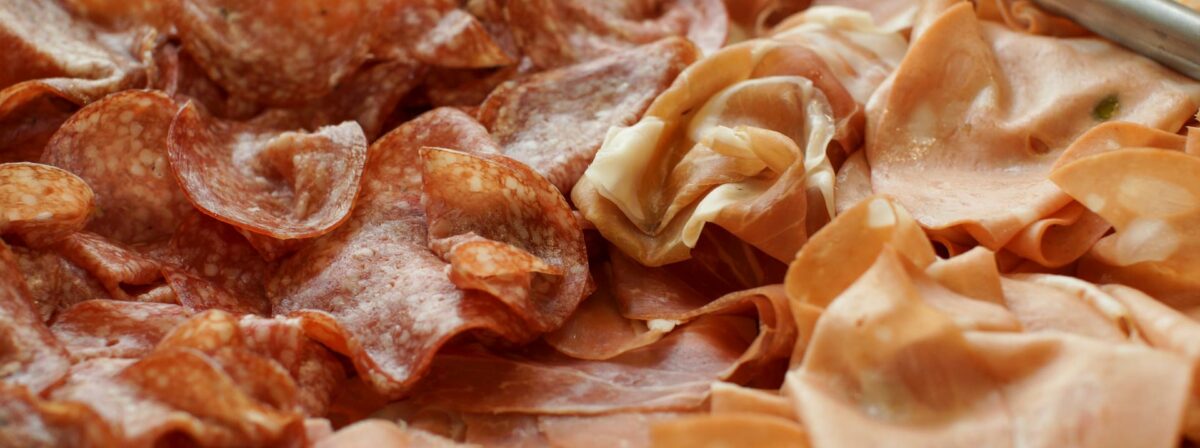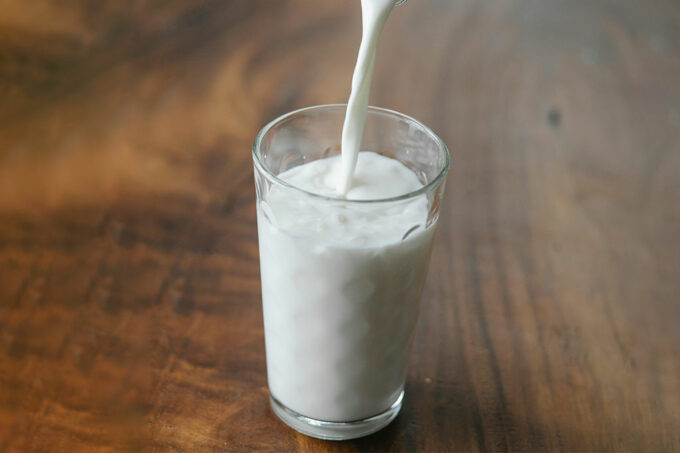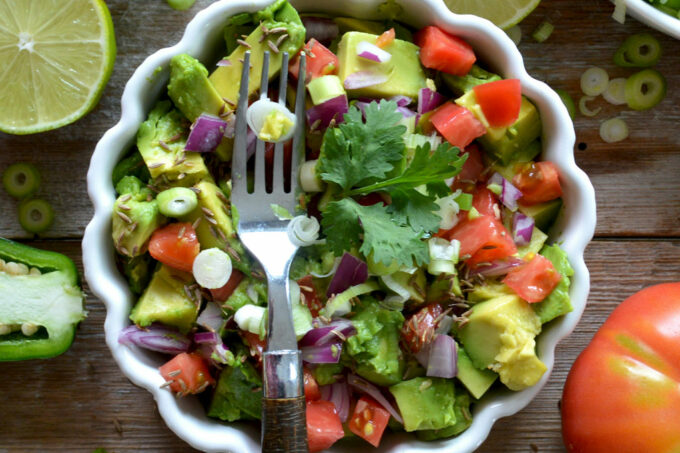In a report released in October 2015, the International Agency for Research on Cancer (IARC, part of the World Health Organization) classified the consumption of processed meat as a cause of cancer, particularly colorectal cancer, and the consumption of red meat as probably carcinogenic to humans.
Red meat refers to all types of mammalian muscle meat, such as beef, pork, lamb, mutton and goat. White meat includes poultry, fish, sea food. A quick comparison of the two: red meat contains more myoglobin than white meat does, thus the dark red colour. Myoglobin has heme and iron, thus red meat provides more iron than white meat does. Red meat also has a higher content of zinc and B vitamins, and of fat. Fat from grass-fed animals may have some omega-3 fatty acids, but you are more likely to get more omega-3 from white meat, especially fish. Red meat is generally more flavourful.
Processed meat refers to meat that has been transformed through salting, curing, fermentation, smoking, or other processes to enhance flavour or improve preservation. Most processed meats contain pork or beef, but processed meats may also contain other red meats, poultry, offal, or meat by-products such as blood. Examples of processed meat include hot dogs (frankfurters), bacon, ham, salami, sausages, corned beef, and biltong or beef jerky.
Meat processing, such as curing and smoking can result in formation of various chemicals which are known to be carcinogenic. Some of the chemicals used to preserve meat (eg nitrites) generate carcinogenic compounds when they get to the gut. The heme in the myoglobin in red meat is broken down in the gut to form compounds that are carcinogenic. The heme iron itself mediates the formation of some of these carcinogenic compounds. Although cooking improves the digestibility and palatability of meat, the process can generate known or suspected carcinogens. High-temperature cooking by panfrying, grilling, or barbecuing generally produces the highest amounts of these chemicals.
So what does this mean on a day-to-day basis?
Processed meat has been classified as a ‘definite’ cause of cancer (or a Group 1 carcinogen) – the same group that includes smoking and alcohol. And red meat is a ‘probable’ cause of cancer (or a Group 2a carcinogen). This grouping shows how confident IARC is that red and processed meat cause cancer, not how much cancer they cause. So, for example, the risk of cancer from smoking cigarettes is way higher than the risk from eating processed meat.
Regularly eating large amounts of red and processed meat, over a long period of time, is probably not ideal for a long and healthy life. Moreover, people that eat a lot of red and processed meat tend to eat less of the plant-based foods and therefore miss out on their benefits which include possible protection against cancer. Meat has an important role in the diet as a source of iron, zinc and protein, so the other extreme of eliminating it from the diet because of its association with cancer is uncalled for. Moderation and diversity are key. Review and reflect on your diet. Are you eating processed meat daily? Full (or almost full) English breakfast? The innocuous mid-morning sausage-snack? In Luganda “marriage” for a woman is synonymous with cooking, “okufumba”; “bufumbo”. For many, this means presenting rich, meat-based meals. In urban Uganda in general, one of the ways we interpret “good living” and being wealthy is being able to eat meat daily. Review and reflect; cut back and have some days every week that are completely meat-free. Let good living or being wealthy mean that your diet is even more diverse.
A diet that is high in vegetables, fruits, legumes, whole grains, nuts and seeds is the best way to go. Replace some of the red meat and processed meat with fish, beans, peas and groundnuts, and chicken.
NOTE: Avoiding tobacco, getting to and staying at a healthy weight, getting regular physical activity, and limiting alcohol can also help lower the risk of getting many types of cancer.
Rhona Kezabu Baingana is a nutrition scientist with the Department of Biochemistry and Sports Science, Makerere University, Uganda, with over 20 years’ experience in nutrition. She was a founding member of Uganda Action for Nutrition which transformed into the Nutrition Society of Uganda. Rhona holds a PhD (Makerere University), MSc (King’s College London), and BSc (Southampton University). Rhona is passionate about nutrition and is keen to use her knowledge and experience to support Ugandans eat healthy as part of a healthy lifestyle.




